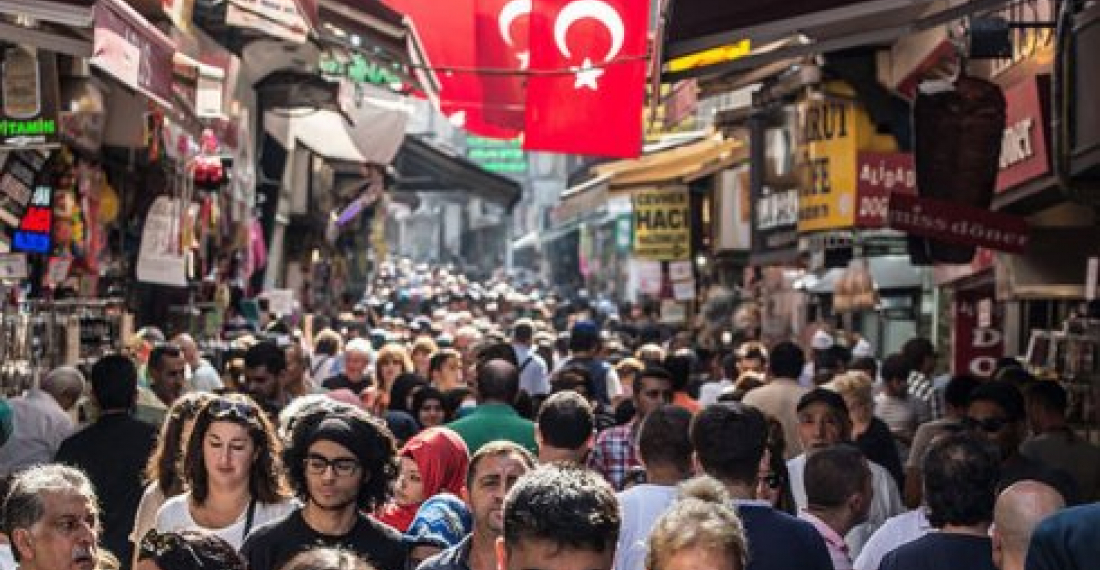Turkey's population reached 82 million by the end of 2018, according to the Turkish Statistical Institute (TÜİK), cited by Hurriyet Daily News
Official figures revealed that the population residing in Turkey increased by 1,193,357 people year-on-year.
"Male population was 41,139,980 people and female population was 40,863,902 people. While 50.2 percent of the total population were males, 49.8 percent of the total population were females," TÜİK said.
Fresh data also showed that annual population growth rate increased to 1.47 percent in 2018 from 1.24 percent in 2017.
The most populated province was Istanbul with 15,067,724 inhabitants, constituting 18.4 percent of Turkey's population. This province was followed by the capital Ankara with 5,503,985 inhabitants, the Aegean province of İzmir with 4,320,519 inhabitants, the western province of Bursa with 2,994,521 inhabitants and the southern province of Antalya with 2,426,356 inhabitants, respectively.
The least populated province was the northeastern province of Bayburt with 82,274 inhabitants.
The population rate in the 15-64 working age group increased by 1.4 percent compared to the previous year. Accordingly, the proportion of working age group became 67.8 percent; the proportion of children aged 0-14 became 23.4 percent and the proportion of population aged 65 and over became 8.8 percent in 2018.
source: commonspace.eu with Hurriyet Daily News






